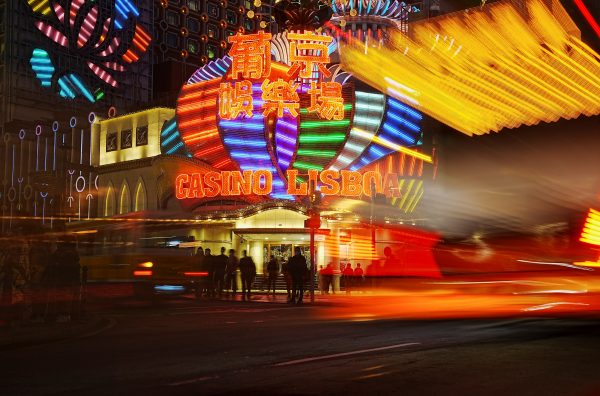Macau then embarked on a tourism recovery journey after a three-year-long meltdown. The initial recovery was largely pushed by the success of proactive policies introduced by the Macau government and pulled by the backlog in demand for tourism from China — especially from the Guangdong–Hong Kong–Macau Greater Bay Area.
The Macau government’s decision to follow the nationwide pandemic control measures from 2020 was judicious and proved effective for its medium- and long-term growth. Macau is a tourism-based mini-economy that is overwhelmingly reliant on visitor arrivals from mainland China and Hong Kong, accounting for 70.9 and 18.7 per cent of total visitor arrivals in 2019 respectively. But under the Chinese government’s travel restriction policies, Macau’s average daily visitor arrivals tumbled by over 80–90 per cent from 2019 levels. Tourist numbers fell from over 100,000 in 2019 to around 9100 in 2020, 21,100 in 2021 and 15,600 in 2022.
The Macau government did not simply adopt expansionary fiscal policies while rescuing the economy, it also strategically embedded targeted measures into some of its spending programs in preparation for its tourism recovery. For example, on top of subsidising its residents to spend on local tourism facilities, the government also worked closely with local firms to develop new tour routes along Macau’s unique history and culture. Tourism attractions were improved and geared up to receive tourists pending the removal of travel restrictions.
The Macao Government Tourism Office (MGTO) took the lead in promoting tourism from the third quarter of 2022, which was when evidence first signalled the diminishing lethality of the Omicron variant. At the end of August 2022, the MGTO carried out a series of promotional activities in the nine cities of Guangdong province (excluding Hong Kong). In 2019, these cities represented 29 per cent of Macau’s total visitor arrivals. These activities mainly included various events and entertainment.
The MGTO also engaged local enterprises and casinos to come up with incentive schemes like transportation and accommodation subsidies to attract tourist arrivals. This explains why Macau was so well geared up for ushering in its recovery once the Chinese government announced the withdrawal of its zero-COVID policies.
The withdrawal of the zero-COVID policy coincided with the lunar new year. This pulled up Macau’s tourism recovery given the demand backlog from mainland China and Hong Kong. According to statistics released by the Macau government, average tourist arrivals in the seven days starting from the eve of the lunar new year was over 64,400 — much higher than the government’s anticipated figure of 47,000.
Since Hong Kong did not fully participate in the Guangdong province’s joint defence and control mechanisms during the pandemic, its residents were subject to strict restrictions when travelling to mainland China and Macau. The propensity for Hong Kong tourists to revisit Macau for social networking and enjoy the city’s tourism events was higher than those from other Guangdong province cities. This explains why the proportional rebound of Hong Kong visitors — accounting for around 40 per cent of Macau’s total number of visitor arrivals in the lunar new year period — was higher than those from mainland China.
Since Macau’s tourism is highly reliant on tourists from mainland China and Hong Kong, the withdrawal of China’s zero-COVID policies will undoubtedly jumpstart and sustain its tourism recovery. While some international tourists may take time to observe the impact of rising COVID-19 cases in mainland China, their travelling decisions will not necessarily alter the recovery momentum. For example, after favourable experiences in January 2023, the Macau government announced a series of follow-up incentives in the first week of February 2023. This included free air tickets and hotel subsidies for tourists from mainland China, Hong Kong and overseas.
On top of the government’s direct push, Macau’s tourism recovery may also be further strengthened by casino operators’ efforts to bring in more foreign visitors outside of mainland China, Hong Kong and Taiwan. According to Macau’s new gaming law — effective from 1 January 2023 — up to 5 per cent of casinos’ gross gambling revenue may be exempted on the condition that the revenue comes from foreign visitors.
Although the scale of recovery from foreign visitors may initially lag behind mainland China and Hong Kong, it is reasonable to expect that casino operators will formulate active plans to attract more foreign visitors when the civil aviation system between Macau, mainland China and the outside world resumes.
But there is still a long distance to reach pre-COVID-19 tourism levels. Continuous joint efforts among the government, industry and the community will be needed to maintain a high-quality hygienic environment, respond to unexpected bounce-back situations and ensure a sustainable recovery.
While tourists’ expectations of Macau may initially be high, ensuring service quality will not be the sole responsibility of firms — it will also require continuous communication between government and industry.
Ricardo C S Siu is an Associate Professor in the Department of Finance and Business Economics at the University of Macau.

